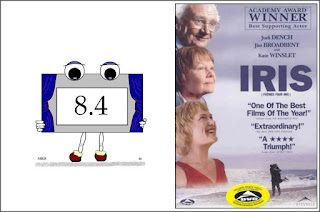Madame Butterfly
Genre: romantic drama
With: Ying Huang (Cio-Cio-San), Richard Troxell
(B.F. Pinkerton), Ning Liang (Suzuki), Richard Cowan (Sharpless), Jing Ma Fan
(Goro), Christopheren Nòmura (Prince Yamadori), Constance Hauman (Kate), Kusakabe
Yo (Uncle Bonze), Kamel Touati (Uncle Yakusidé)
Director: Frédéric Mitterrand
Screenplay: Frédéric Mitterrand (adapted from the
libretto by Giuseppe Giacosa and Luigi Illica)
Release: 1995
Studio: Erato Films, Idéale Audience, Imalyre et al.
Rating: -
MBiS score: 8.6/10
‟She's like a porcelain doll. She sets me on fire.”
QuickView
Story-line: Japan, 1904. Pinkerton, an American naval
officer temporarily stationed in Nagasaki, has decided – why not! – to live it
up during his stay. He buys himself a house complete with servants and gets
engaged to pretty Cio-Cio-San. Sharpless, the American consul who advises him,
acknowledges that he is free to do whatever he chooses but urges caution
anyway.
Pluses: admirable singing and acting by Ying Huang (an
immensely touching Cio-Cio-San) and Richard Troxell (a dashing Pinkerton), firm
support from Ning Liang, Richard Cowan and Jing Ma Fan, remarkable direction, a
simple yet intense screenplay depicting memorable characters and events,
breathtakingly beautiful cinematography, ravishing production values (sets,
costumes, locations), a lovely musical score and a powerful ending.
Minuses: the story-line could be considered
anti-American if not for the worldly Sharpless who embodies another side of ‟yankee”
culture.
Comments: the very accessible MADAME BUTTERFLY is one of the best operas ever composed and Frédéric Mitterrand’s dignified version for the screen does justice to Puccini’s masterpiece. Each and every frame of this movie is purposed for beauty and filmed with dedication and respect. Even if opera isn’t your thing, you will feel fortunate to see such a spectacle of passion and tragedy. ‟Dovunque al mondo lo Yankee vagabondo…*”
MBiS
*‟Everywhere in the world the wandering Yankee…” - Source: www.opera-arias.com/
© 2022 – All rights
reserved



















